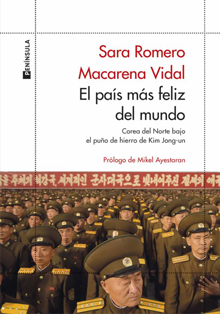Pedro Canales
Journalist
Jordan’s King Abdullah II was received with full honours by Algerian President Abdelmadjid Tebboune during his official visit to Algeria last week. The main purpose of the Hashemite sovereign’s visit was to reconcile Algeria with Morocco. There are many indications that the Jordanian monarch’s aim may come to fruition.
Abdelmadjid Tebboune received King Abdullah II like a brother, with a warm welcome at the highest level, and a surprising media display. The Algerian head of state knew that the reason for the trip, apart from the protocolary intensification of bilateral relations, which were, by the way, rather insignificant, was to offer himself as a mediator between Algiers and Rabat to reconcile the two Maghreb countries. And not only did he accept the offer, but he publicly showered his guest with praise.
The Jordanian king arrived from Cairo, where he held a long meeting with Egyptian President Abdel Fattah al-Sisi, with whom, in addition to discussing new ways to unblock the Israeli-Palestinian conflict, which has been blocked for seven years by Tel Aviv’s non-recognition of the “two peoples, two states” formula, they discussed the conflict between Morocco and Algeria. The Hashemite sovereign informed his Egyptian host of his intention to mediate in the conflict between the two North African countries. Although the joint communiqués make no mention of the Maghreb conflict, Abdullah II is believed to have received Al-Sisi’s backing for his mission, ‘provided that the interests of both countries are safeguarded’.
Before King Abdullah II, other monarchs and presidents have attempted reconciliation between Algiers and Rabat: Saudi Crown Prince Mohammed bin Salman; Mauritanian President Mohammed Ould Ghazouani; the President of the United Arab Emirates, Mohammed bin Zayed al-Nahyan, who met with the Jordanian monarch a week before his trip; and repeated attempts by US, French and Spanish diplomacy to bring the two geopolitical rivals in the Maghreb closer together.
In addition to privileged relations with King Mohammed VI of Morocco, and an unprejudiced respect for Algerian President Abdelmadjid Tebboune, whom he met at the Sharm el-Sheikh Climate Summit a month ago, Abdullah II has the full backing of the Gulf Cooperation Council, made up of the Arab monarchies of the Fertile Crescent.
According to some sources, the Jordanian monarch proposed to his host a plan of measures needed to unblock the bilateral diplomatic and political crisis. Two areas stand out in the plan, economic and political.
On the economic front, Algerian, Moroccan and Spanish interests in Algeria’s supply of Saharan gas to Europe, with the reactivation of the Maghreb-Europe gas pipeline, interrupted on 31 October 2021 but not uninstalled; and support for the complementary supply of Algerian gas to Europe through the Transmed pipeline linking Algeria to Italy via Tunisia. It is no coincidence that King Abdullah II of Jordan completed his tour with an official visit to Italy after the Algerian leg.
On the political and institutional level, Abdullah II is said to have suggested a road map, which would include a meeting in a third country, possibly Switzerland, of the personal representatives of King Mohammed VI, Yassin Mansuri (head of the intelligence services) and Fuad Ali El Himma; and of President Abdelmadjid Tebboune, General Mhenna Djebbar, in charge of the foreign service, and General Boumedien Benattou, presidential adviser. This meeting would make it possible to identify bilateral issues of contention, and would pave the way for a political meeting between representatives of the two heads of state, prior to their summit meeting between President Tebboune and King Mohammed VI, possibly in Amman, under the auspices of King Abdullah II.
The positive aspect of the Jordanian king’s attempt at mediation is that it has not received a negative response from either Algiers or Rabat. Points of friction between the two, such as the Western Sahara issue, the Moroccan-Israeli agreements in the defence and security sector, and the strategic agreements between Algeria and Russia, may enter the discussion, or be put on ‘standby’ for later discussions. In both Algiers and Rabat, the impression is emerging that the re-establishment of diplomatic relations, an essential step in the bilateral dialogue, could be very soon.
© Atalayar / All rights reserved






